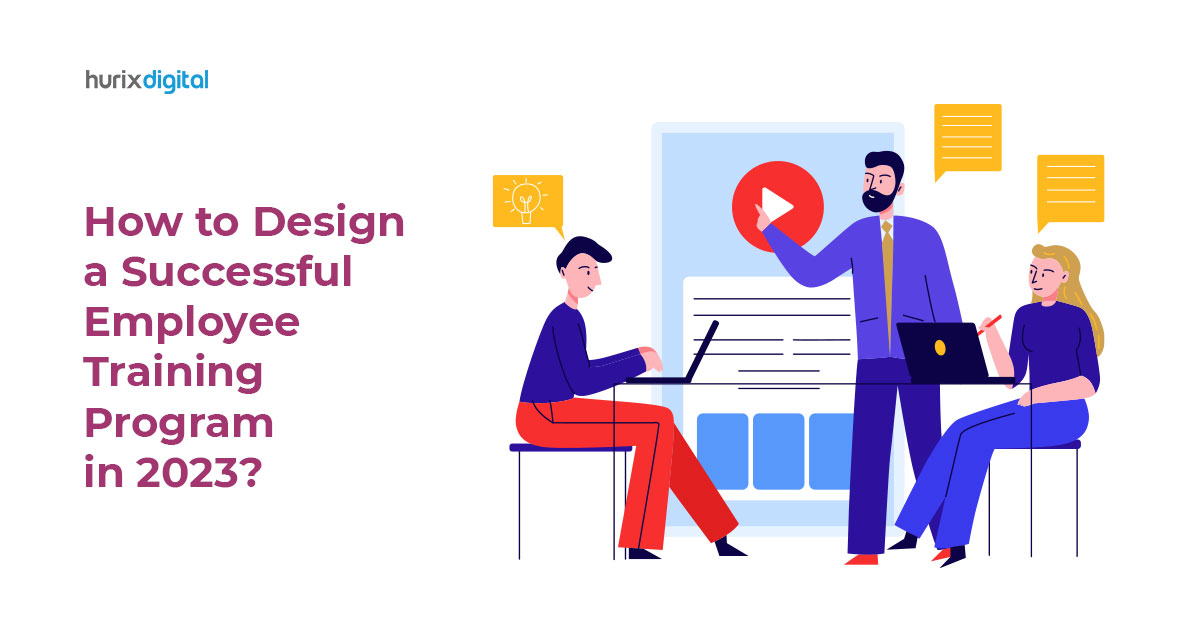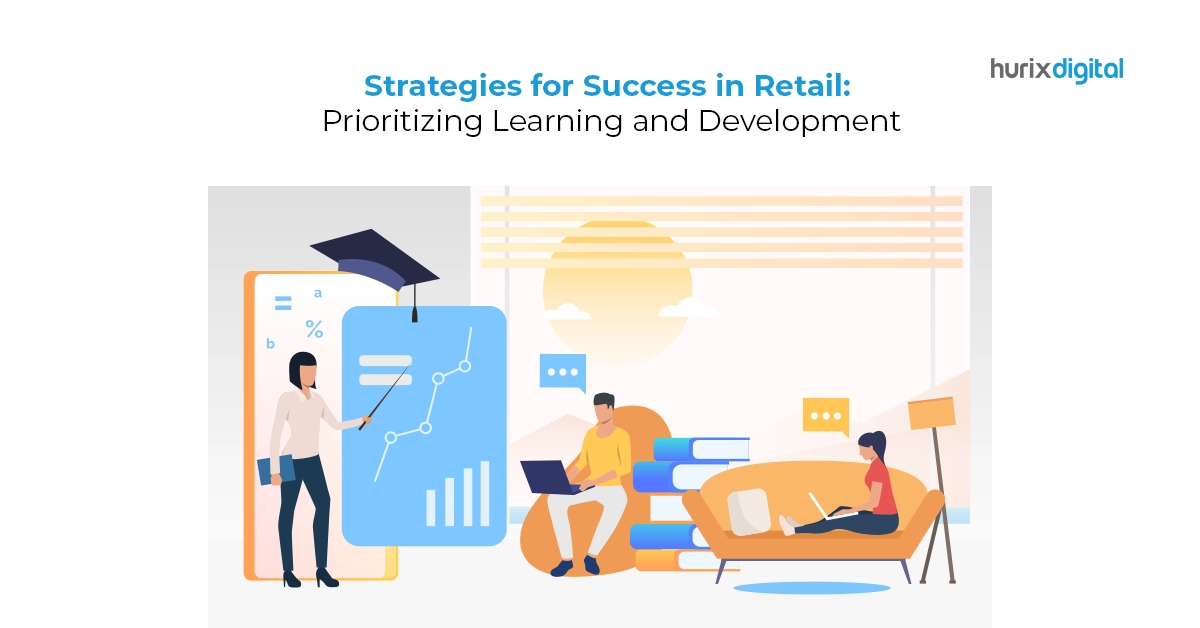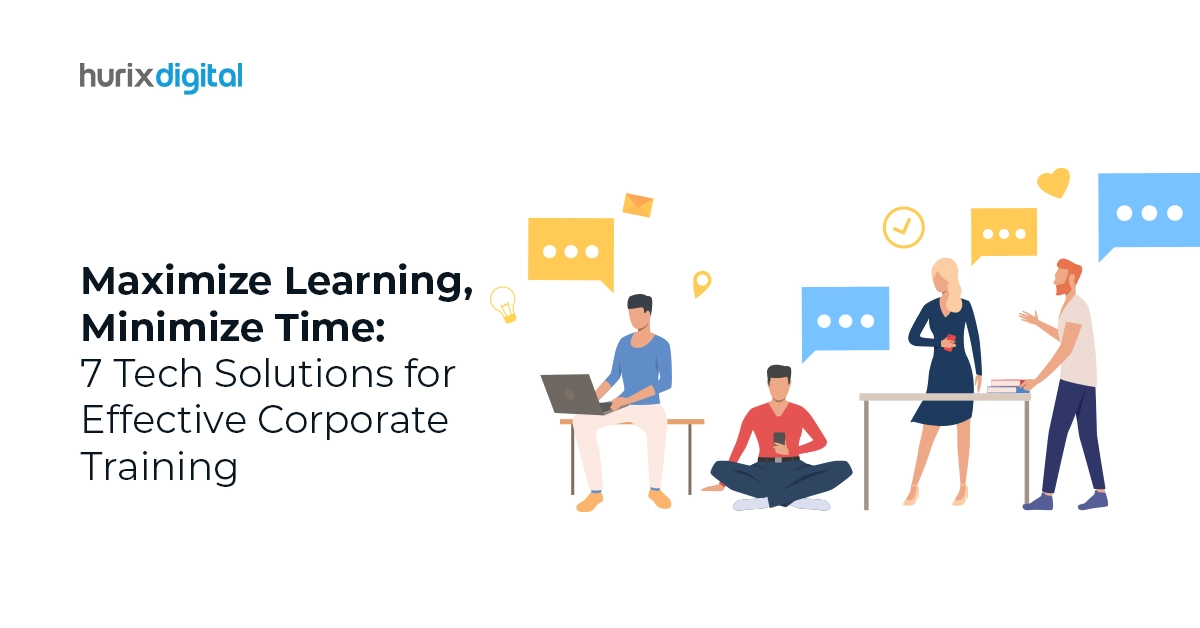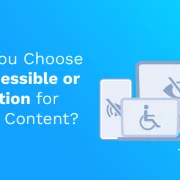
How to Design a Successful Employee Training Program in 2025?
Agility is no longer a luxury; it’s a necessity. With industries constantly evolving and consumer expectations soaring, businesses need to be able to adapt quickly to stay ahead of the game. According to one recent study, 70% of companies are on major digital transformations.
The COVID-19 pandemic has taught us an important lesson: businesses that can be adapted with sharp speed as well as by adopting digital solutions have a much higher survival rate compared to others during such challenging times. The more the world keeps on evolving, the more it needs this lifeblood of learning and adapting itself.
Keeping this in mind, most companies now include enterprise training to upskill their employees and move forward in the business world.
Forming an effective enterprise training program is not as complicated as it seems – by following just a couple of simple steps, you can be engaged in designing a training program for employees in 2025. Consider this article your complete guide to crafting the perfect enterprise training strategy.
Table of Contents:
- Objectives of Enterprise Training Programs
- How to Build an Effective Enterprise Training Program in 5 Steps
- Key Considerations for Effective Training Programs
- Final Words
Objectives of Enterprise Training Programs
Effective enterprise training programs can reap enormous rewards, among them being:
1. Skill Development
Developing the abilities and competencies of employees is one of the primary goals of creating and structuring training programs. These programs emphasize the development of technical proficiency, job-specific abilities, and soft skills like problem-solving, leadership, and communication.
2. Employee Performance Improvement
Training programs aim to improve employee performance. They seek to fill knowledge gaps, provide job-specific training, and equip employees with the tools and resources needed to execute their jobs successfully. They aim to develop productivity, efficiency, and proper job performance.
3. Adaptation to Change
Organizations need to adapt in a very dynamic business environment as it changes with respect to changing technology, processes or industry trends. They must learn to design a corporate training program to equip the employees so that they gain new knowledge that adapts them to change and stay updated and capable of effective performance of responsibilities.
4. Employee Engagement and Retention
Training can increase employee engagement and satisfaction. By developing and growing employees, organizations can ensure employee loyalty, motivation, and retention.
5. Organizational Alignment
Training programs are designed to align employee skills and knowledge with the organization’s strategic objectives. Organizations offer training on specific processes, systems, or values so that all employees operate in a similar fashion and work toward common goals.
6. Planning and Execution
Succession planning can utilize the courses to identify and groom potential leaders within the organization. Organisations can create a pipeline of talent through targeted training opportunities, hence providing adequate time for succession in key roles. Designing training programs is of the essence.
7. Compliance and Regulatory Requirements
In some industries, training programs are required to be implemented due to legal and regulatory compliance. The design of training programs is to inform employees of industry regulations concerning safety, ethical practices, or data security.
Also Read: Revolutionizing Employee Training: Exploring the Latest Trends in Corporate Learning Platforms
How to Build an Effective Enterprise Training Program in 5 Steps
A good training program for a successful enterprise is very well-planned and executed.
Here are five steps to consider for how to design a corporate training program:
1. Assess Training Needs
The first step involves conducting an assessment of your organization’s training needs. Identify knowledge and skill gaps among employees and determine which areas need interventions. Surveys, performance evaluations, interviews, or even analysis of organizational data can be great tools.
2. Define Clear Objectives
Establish precise goals for creating a company training program after determining the training needs. Clearly state your goals for the program, including skill development, performance enhancement, and other desired results. These goals will direct the program’s development and execution.
3. Design Your Training Program
Design the form and content of your training program with identified needs and objectives in mind.
Since there is no one-size-fits-all approach, choose which delivery modalities are best for your company. These may include in-person workshops, eLearning modules, on-the-job training, or a mix of these. Create eLearning materials that are interesting and pertinent, such as interactive online courses, manuals, videos, and presentations.
4. Implement the Training
The corporate training program needs to be properly implemented after it has been designed. Provide employees with clear instructions and information about the program, its goals, and how they may get involved.
Schedule the sessions or make the training materials available through the delivery channels chosen. It is also important to equip the trainers or facilitators so that they are adequately prepared to present the training content.
5. Evaluate and Improve
After creating a business training program, evaluate its efficacy and ask participants for comments after it has been delivered. To evaluate the effects of the training on employee knowledge, abilities, and performance, use evaluation instruments, questionnaires, or feedback forms.
This will provide insight into what needs improvement and what has been successful. Use these findings to make necessary adjustments and improvements for future iterations of the training program.
Key Considerations for Effective Training Programs
Here are some key considerations to check out:
1. Learner-Centric Approach
The requirements and preferences of the students are given more attention in a learner-centric approach. As a result, companies can tailor training courses to the learning preferences of those participants, increasing retention and engagement.
The key strategies for creating a corporate training program are:
- Personal Learning Paths: customization for individual skill levels and learning goals
- Hands-On Learning Experiences: inclusion of simulations, role-playing, and group discussions to engage learners actively
- Relevance to Real Life: connection of training content with real-life scenarios or challenges
2. Intriguing Content Delivery
Since effective training plans need to appeal to learners and help them retain the knowledge, there are a variety of engaging delivery methods. Some effective strategies include the following:
- Multimedia Content: Includes videos, infographics, as well as interactive materials for better learning
- Microlearning: Breakdown of intricate topics into more digestible parts
- Gamification: Using games to make learning fun and motivating
3. Use of Technology
Technology can greatly enhance the efficacy of a training program. Technology aids organizations in developing experiences that are engaging, flexible, and accessible. Some prominent technology tools are:
- Learning Management Systems (LMS): These are centralized platforms for delivering, tracking, and managing training content
- Mobile Learning: Provision of learning content through mobile devices
- Virtual and Augmented Reality: Creating immersive learning experiences
4. Accessibility and Inclusivity
The need to ensure that training programs are accessible to all learners. The key considerations are:
- Accessibility Standards: Ensuring accessibility standards such as WCAG 2.1, to make learning material available to everyone with disabilities
- Language and Cultural Sensitivity: Alignment of content to a wide range of learners, respecting the multilingual barrier
- Flexible Learning Options: Multiple options to suit different modalities and schedules to enhance learning opportunities
5. Continuous Learning and Development
Continuous learning builds a robust, professional, and agile workforce. Organizations should promote a learning culture by:
- Regular Performance Reviews: Identify skill gaps and development needs
- Career Development Plans: Support career aspirations through tailored training
- Leadership Development Programs: Develop the future internal leadership
- Employee-Driven Learning: Empowering employees to take ownership of their learning and development.
Also Read: 8 Tools You Need To Build An Employee Training Program
Final Words
Learning is a never-ending process, and it’s time to give up thinking that educational institutions are the only place where one can learn.
Workplace trends are changing rapidly, and if an organization still makes the mistake of not keeping up with business trends and upskilling employees, failure will be inevitable.
While implementing enterprise training programs is the part where things get complicated, Hurix Digital’s employee training solutions make the process remarkable.
With comprehensive, game-based learning solutions, complex topics are divided into bite-sized content so that learners can learn even on the go. Got questions? Our team is ready to assist you with tailor-made solutions that align with your organization’s unique needs and objectives.







